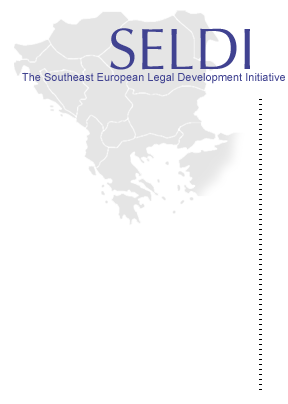

Coalition Building and Monitoring for Anti-Corruption in Southeast Europe
The Coalition Building and Monitoring for Anti-Corruption in Southeast Europe project was successfully launched in September 2000 as part of the Southeast European Legal Development Initiative.
Purpose and premise
The overall objective of the SELDI anti-corruption project/component is to introduce aregion-wide institutional framework for public-private cooperation in countering corruption in the countries of Southeast Europe. The main premise of the project approach is that the institutionalization of corruption in the SEE countries cannot be explained by the national circumstances alone. A number of region-wide causesneed to be taken into account if we are to comprehend the depth of the problem.
The gravity of the problem calls for bold and radical measures if corruption is to be stemmed. For this to happen, broad public coalitions need to be formed both within countries, and region-wide. Traditional bureaucracies – be they national or international – cannot muster the type of public support needed if these reforms are to be successful.
Thus a partnership between public and private institutions is the most appropriate anti-corruption model for the region. This approach has three main pillars – encouraging coalition building on a regional basis, enhancing public awareness and regular monitoring of corruption dynamics. In all three areas, the process is intended to be NGO-driven.
The importance of the latter is premised on the fact that support coming from a cross section of society, involving major public and private actors could only be enlisted in this process if society has a clear view of the severity of the problem. This warrants the introduction of a new kind of corruption assessment which goes beyond traditional law enforcement methods. This new kind could only be successful if it is based on cooperation between the public institutions, involved in designing and implementing anti-corruption policies, and civil society institutions which are expected to generate civic support for these policies. For this to happen, the assessment on which these policies are based, needs to be carried out in a public-private partnership.
The project is supported through a grant from USAID.
More:
Purpose and premise
Project progress
Regional corruption assessment
Regional corruption monitoring system
Preparation of phase two